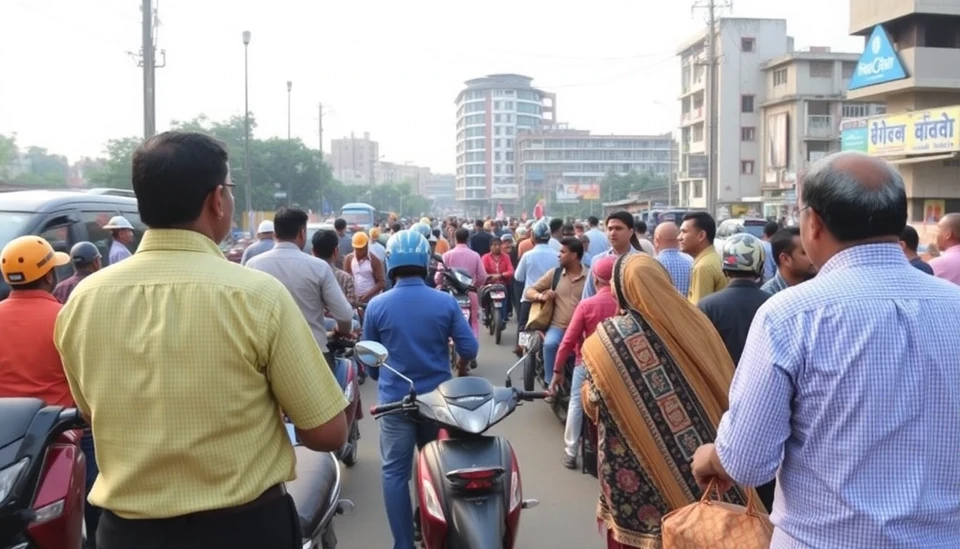
In a troubling trend for India’s economy, urban wages have been steadily declining, placing a significant strain on the middle class that is vital for robust economic growth. Reports indicate that the decrease in earnings is affecting not just household stability but also posing broader challenges to India's economic health.
Recent data has revealed that average wages across various sectors have witnessed a decline, creating a ripple effect that is alarming for the urban middle class. This demographic, which traditionally relies on consistent income to sustain their livelihoods and maintain a certain standard of living, is now grappling with the consequences of this wage contraction. As costs of essential goods and services continue to rise, households are finding it increasingly difficult to manage their finances.
The ramifications of falling wages extend beyond individual households. Economists warn that a sputtering middle class can stifle consumer spending, one of the primary engines of economic growth in India. As consumption drops, businesses may face diminishing sales, leading to further job cuts and a cycle of economic decline that can be challenging to reverse.
Government data highlights a worrying reality: many workers are receiving stagnant or reduced salaries, with inflation rates outpacing wage growth in several sectors. This has compounded the financial pressures faced by families, as they struggle to keep up with rising housing costs, healthcare, and education expenses. Families that previously felt secure are now having to make difficult decisions about spending and saving.
Furthermore, experts point out that this trend isn’t just a temporary blip but part of a larger structural issue within the economy. Issues such as inadequate job creation, a mismatch in skills, and the increasing shift towards automation are exacerbating wage stagnation. Many of those in urban areas find themselves in low-paying jobs with little opportunity for advancement, which has led to growing discontent and anxiety among the population.
As the middle class feels the pinch, social and political implications are also likely to unfold. Discontent over economic conditions has historically led to increased unrest and demands for policy reform. The Indian government faces mounting pressure to address these wage issues, ensure sustainable job creation, and implement policies that will support wage growth and economic stability.
The decline in urban wages symbolizes a critical juncture for India, where economic aspirations collide with harsh realities. Stakeholders across the spectrum—governments, businesses, and individuals—must engage in discussions and actions aimed at reversing this trend to pave the way for a healthier economic future for all.
In conclusion, as urban India navigates these challenging times, focus must shift towards reinforcing support for the middle class. This includes better job opportunities, skill development programs, and policies aimed at enhancing wage growth. The outcome will not only affect individual lives but will shape the economic landscape of the nation in the years to come.
#India #Wages #MiddleClass #Economy #ConsumerSpending #Inflation #JobCreation #EconomicGrowth #SocioEconomicIssues
Author: Daniel Foster




